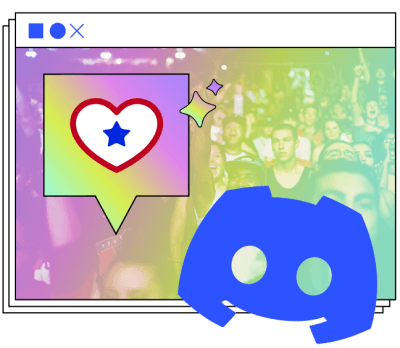
Navigating Online Echo Chambers and Media Bubbles in 2024
Do you ever feel like you see the same content on your feed again and again? While algorithms on social media sites like Twitter, Instagram, and TikTok can improve a user's experience on the app by showing them content they are likely to enjoy, they can also lead to the creation of echo chambers.
What Is an Echo Chamber?
On the internet, echo chambers describe the formation of online spaces where people only hear commentary that aligns with their own world view. This in turn, creates a bubble where an individual's beliefs are reaffirmed by others who share this viewpoint. Characteristically, echo chambers do not highlight contrasting opinions, holding the majority opinion as absolute truth. This phenomenon can be observed across apps, recommendation algorithms, and confirmation bias in search engines. According to research conducted by Penn Professor Duncan Watts, there is an estimated 4% of Americans who belong to political online echo chambers. Though a small percentage, this number actually reflects millions of Americans who hold the capacity to influence American policy and culture.
Notably, users in an echo chamber can be further exploited by outside influencers. Political groups and advertisers can spin narratives and spread disinformation in order to profit off of vulnerable users. These outside influencers take advantage of the fact that there is no dissenting opinion and no fact checking in these spaces. This in turn maximizes the perceived validity of their claim. At the same time, users in the “echo chamber” become further entrenched in their ideological extremes.
How Echo Chambers Form
The way echo chambers form across sites varies. However, algorithms often play a large role in shaping internet echo chambers. When users engage with a site, they are often shown media based on what algorithms think that user is likely to engage with. While this is useful in enhancing the user experience on the site, it can also siphon users off into groups, showing them content that exclusively aligns with their pre-existing viewpoints. Then, it is common for people who share some views with a more extreme audience to be pulled into the echo chamber on the basis of their shared values. Upon being accepted into that community, they will then be introduced to more extreme content.
As a result, a person who previously was not as polarized in their viewpoint becomes so. This tactic plays on our natural human instinct to seek out community, and in combination with algorithms that support these tactics, makes us all especially vulnerable.
How to Identify Echo Chambers
Because online echo chambers can take on different forms depending on the platform, it is important to define some key characteristics in order to identify them. Most internet echo chambers share some of these things in common:
Strong Emotional Language and Informality: The use of highly charged language like profanity and exclamation marks may create a sense of urgency amongst users. This technique is especially engaging, appealing to a viewer's emotional response rather than their individual reasoning and critical thinking.
Personal Pronouns: The use of pronouns like “you” and “I” in chat forums or comment sections can work to develop a sense of personal connection. Once this relationship is established, it is easier for users to share more extreme content on the basis of this shared relationship.
Us vs. Them Ideology: Divisive language, in which a group separates themself from the whole, often leads to the demonization of people outside of these groups and further fuels the hyper-partisan nature of the echo chamber.
Group Alignment: Users’ comments and discourse uniformly align with a shared stance. There is an extreme lack of debate and alternative viewpoints.
How Do Echo Chambers Influence Us Politically?
Internet echo chambers are often pointed to as a major contributor to the increased political polarization in America. Because echo chambers uphold and reinforce ideologies, they can serve as a breeding ground for political radicalization. Without the criticism and dissent that is essential to democracy, these online spaces can allow the spread of misinformation across its members.
Additionally, they can create media bubbles, in which members only see news that confirms their political ideology. The consequence to this is that users can unintentionally adopt extreme political ideologies. When this happens, users will become less tolerant to opposing views and healthy discourse online and in the real world.
This effect can seep into local and federal policy as well. Though these users may be in the political minority, their online influence can create an inflated sense of support around a given political stance. As a result, members of these online spaces can influence the adoption of more extreme public policy and the election of hyper-partisan officials.
The 2024 Presidential Election
The 2024 election cycle will be one of the most polarizing election years we have ever seen. The web will therefore serve as a battleground for candidates to make their case. As a result, we can expect to see a rapid spread of echo chambers and a rise in the extremism they can spread. This is because hyperpartisanship and echo chambers go hand in hand.
Therefore, it will become even more important to critically evaluate the media we come across and choose wisely what content to engage in. Truth and the plurality of opinions is essential to a strong democracy and fair elections, both of which echo chambers work against.
Responding to Echo Chambers and Media Bubbles
While the development of online echo chambers can often feel out of our control, there are some things individual users can do to decrease the likelihood of becoming looped into internet echo chambers. By intentionally diversifying and critically analyzing the media they consume, a user can create a more comprehensive feed:
Media Literacy: Media literacy refers to the skill of analyzing and verifying information posted on the web. It requires users to not only affirm facts, but also judge these facts’ usefulness in supporting the arguments within a post. The skill requires users to look beyond the surface level and into the core motivations of another user’s or content’s message. In application to internet echo chambers, media literacy becomes one of our strongest tools to fight misinformation and political polarization.
Diversification: Intentionally choosing to consume media that shares competing viewpoints is important to fighting off echo chambers. Diversification of media provides a user with different viewpoints. This in turn will make a user more informed as they encounter content on the web. The diversification of media consumption also gives a user the tools necessary to compare information from different sources and sift out misinformation and extremist ideology from truth.
While it is not wrong to want to be in a space of like-minded individuals, there is a danger to closing off one's information web. Through the plurality of viewpoints and lived experiences, we create strong and productive online communities, something the formation of echo chambers contradicts.
